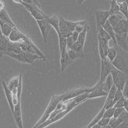Calophyllum inophyllum in vaginitis treatment: Stimulated by electroporation with an in vitro approach.
Mots clés
Abstrait
BACKGROUND
Vaginitis is one of the most common problems in clinical medicine and is cited most often during visits to obstetricians and gynecologists. Most of the inflammation cases are caused by candidiasis trichomoniasis and bacterial vaginosis. Therefore, treatment of vaginal infections must use antibiotic or antifungal drugs, which often provide quick relief to the patient. The real cause of the problem - disrupting the ecosystem of the vagina - remains unchanged. Thus, new therapeutic compounds are being explored.
OBJECTIVE
The aim of our study was to evaluate the effect of a natural substance: tamanu oil, an extract from the plant Calophyllum inophyllum, applied to the human fibroblast cell line (normal human dermal fibroblasts - NHDFs) and to the isolated human fibroblasts from the vagina (human vaginal fibroblasts - HVFs) in vitro.
METHODS
We evaluated the viability of cells by 3-(4,5-dimethylthiazol-2-yl)-2,5 diphenyl tetrazolium bromide (MTT) assay after incubation only with tamanu oil and with electroporation (EP). We also examined the immunocytochemical reaction of collagen type III and mitochondrial superoxide dismutase (MnSOD) under established conditions.
RESULTS
Tamanu oil increased the proliferation of cells and the amount of collagen III. It has been shown that the C. inophyllum extract stimulates the proliferation of commercial fibroblasts. For direct application in patients, one should use C. inophyllum extract in the range of 1:10-1:100 (saline dilution).
CONCLUSIONS
The use of this extract (at concentrations indicated by the studies presented here) stimulates the healing processes (increased expression of collagen type III), and has anti-inflammatory, analgesic and antiseptic qualities.



